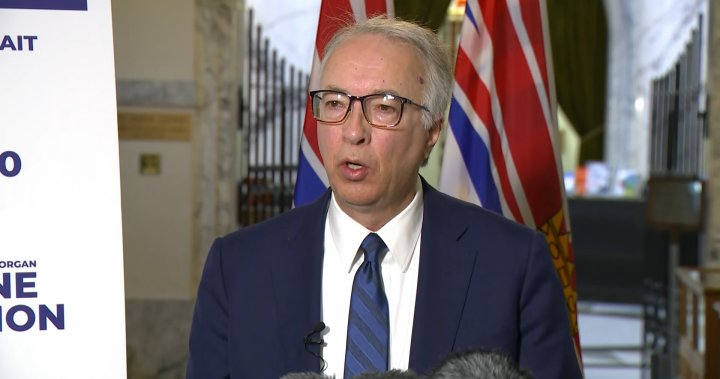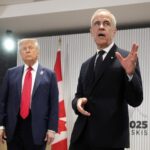The political landscape in British Columbia took a dramatic turn yesterday when Conservative Leader John Rustad alleged that two former MLAs attempted to blackmail him before defecting to David Eby’s NDP government.
In a surprising announcement that sent ripples through provincial politics, Rustad claimed Lorne Doerkson and Cheryl Ashlie threatened to release “damaging information” unless he agreed to step down as party leader.
“They wanted me to resign, and then when I said no, they said, ‘Well, if you don’t resign, we’re going to release some damaging information about you,'” Rustad told reporters at a hastily arranged press conference in Prince George.
The accusations come at a critical moment for B.C.’s political landscape. The Conservatives have been gaining momentum in recent polls, with some showing them potentially forming the next government. This dramatic internal conflict threatens to derail what had been building into a legitimate challenge to Premier David Eby’s NDP government.
Doerkson and Ashlie, who announced their departure from the Conservative caucus earlier this week, quickly denied the allegations. In a joint statement released through their lawyer, they called Rustad’s claims “categorically false” and suggested the accusations were “a desperate attempt to control the narrative.”
Political scientist Hamish Telford from the University of the Fraser Valley sees this as potentially devastating for the party’s credibility. “Right when they were building momentum with voters who are dissatisfied with both the NDP and BC United, they’re now embroiled in this internal drama that raises questions about the party’s stability,” Telford explained in a telephone interview.
The Conservative Party has experienced significant growth since Rustad took over leadership, climbing from virtual obscurity to becoming a serious contender in the upcoming election scheduled for October. This surge has largely come at the expense of BC United (formerly the Liberal Party), creating a more complicated electoral math for all parties involved.
Premier David Eby declined to comment directly on the allegations but welcomed the former Conservative MLAs, saying they “chose to put their constituents above partisan politics.” The timing raises questions, as the defections occurred just months before British Columbians head to the polls.
For everyday voters in communities like Prince George and Cariboo-Chilcotin, where Doerkson held his seat, the political drama adds another layer of uncertainty. “We elected someone to represent our Conservative values, not to jump ship whenever it’s convenient,” said local business owner Janet Kwan, expressing frustration shared by many in the region.
The alleged blackmail attempt centers around what Rustad describes as “fabricated claims” about his leadership and personal conduct. While he didn’t elaborate on the specific nature of these claims, he insisted they were “completely manufactured” in an effort to force him out.
Political strategist Bill Tieleman suggests this could actually galvanize support for Rustad among the party faithful. “Conservative supporters often respond positively when their leader appears to be standing up against what they perceive as establishment forces trying to silence them,” Tieleman noted during a CBC Radio panel discussion.
Meanwhile, Elections BC confirmed they are reviewing the situation but haven’t yet determined if the matter falls within their jurisdiction. The RCMP has not commented on whether any formal complaints have been filed regarding the alleged blackmail attempt.
This controversy emerges against a backdrop of significant policy challenges facing British Columbia, including the ongoing housing crisis, healthcare system pressures, and economic uncertainty. The drama threatens to pull focus from these substantive issues as the election approaches.
Bruce Anderson, chairman of Abacus Data, points out that internal party conflicts often hurt voter confidence. “Our polling consistently shows that voters punish parties they perceive as disorganized or focused on internal squabbles rather than public service,” Anderson explained in an email exchange.
For Rustad, who left the BC Liberal caucus (now BC United) to eventually lead the Conservatives, the challenge will be maintaining party unity while navigating these serious allegations. Several remaining Conservative MLAs have publicly backed their leader, with Kelowna-Mission MLA Renee Merrifield calling the situation “disappointing but clarifying.”
As British Columbians prepare for what was already shaping up to be a consequential election, this unexpected drama adds another unpredictable element to a province known for its volatile politics. Whether Rustad’s allegations strengthen his position or undermine the Conservative momentum remains to be seen, but the political temperature in British Columbia has certainly risen.






